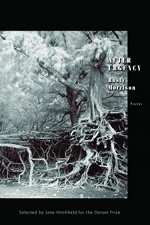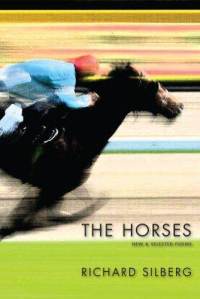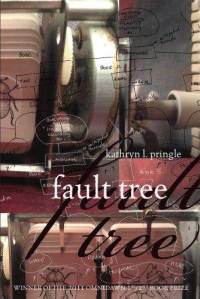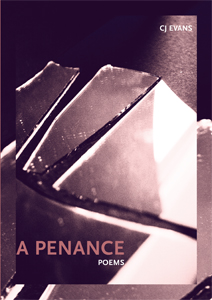
For those of you who have read more poetry! as one of your New Year's resolutions, I have good news. Under review are four notable books of poems by Bay Area writers that were published in the latter half of 2012. I chose them not only because the books are wildly different, but because they represent the work of four excellent independent presses: Tupelo Press, Red Hen Press, New Issues and Omnidawn. I foreground the presses because in this era of anxiety about book vitality and print culture, publishers are just as important as poets. Poetry publishing is a fantastic collaboration of writer, reader and publisher. All three deserve to be commended.
Rusty Morrison, After Urgency. (Tupelo Press, 2012).
Of the many prizes offered by publishers for individual books of poems, Tupelo Press' Dorset Prize is perhaps the most prestigious, and it is certainly among the most lucrative. The 2010 Dorset, judged by Jane Hirshfield, was awarded to Rusty Morrison's After Urgency, an extended elegy for her parents who died within a year of each other. Composed in a series of short lyrics that somehow manage to be both spacious and compact, After Urgency poses a series of provocative questions about the spaces of habitation we have come to call "life" and "death." How, the poet queries, does one fully inhabit life when one's parents fully inhabit death? Where (and how) do language, observation, survival, memory, and, joy fit into this new mode of existence?
The answers are speculative but glorious.
Though it would be inaccurate to read these poems though the lens of minimalism, they are sparse. In some cases, Morrison eschews stanzas entirely, composing her poems out of clipped, compressed sentences. Note the language and the form from the opening lines of the following poem, entitled "In-significance"
The dead, today, are flushed to fever with my own fending-off.Let the cloud-face be a proposition of finding no face at all.
The axial force in a tossed-away stone. From which I gain no center, yet go on encircling.
The day is a thin blown-glass nest. Each of their deaths is an egg in it.
Wow. That last line is what poetry is made for. There is an incredible tension of presence and absence here that reminds me of a melange of W. S. Merwin, Jorie Graham and Rainer Maria Rilke. The emptiness and transparency of the nest would seem to be at odds with the eggs, which connote concealment and indeterminacy but also a sense of promise. However, the nest cradles (even protects) the eggs, making for an incongruous congruity -- very much like that of carrying around death while still being alive.
That sense of incongruous congruity carries over into the book itself, which is divided into five sections with a one-poem coda. The pieces within the sections feature recurring titles like "Aftermath," "An intersection of leaves not likeness," "Commonplace" and "After urgency." Adding to this coherence is formal consistency. For example, the "After urgency" poems are all composed in enjambed couplets, while the "Aftermath" poems find expression in one-line, double-spaced stanzas. The cumulative effect makes this book of poems feel more like a short story collection or an experimental series of autobiographical essays. The recurring themes, titles, forms and ideas create a sense of accrual. Each poem enjoys the luxury of assembly.
In the final "After urgency" poem, Morrison writes, "There is no end to waiting, no mind outside the mind." This line could have come from Wallace Stevens' posthumous collection of poems, The Rock, in which he, too, tests the terrain of life's indeterminacy. Like Stevens, Morrison believes in language's (and poetry's) ability to do what we know it can't do.
And yet it does. Morrison's poems work because they move us. They move us because they pivot back and forth between the poetic and the plain-spoken. That modulation of tone and tension is hard to pull off. In less capable hands such work can feel too tensile. But here, especially in tender moments of directness, the poems let down their armor.
After Urgency's matrix of loss and beauty made me think of Rilke's Duino Elegies. Like Rilke, Morrison has achieved something miraculous by converting absence into presence. She makes poetry a prayer for this life.
Richard Silberg, The Horses: New & Selected Poems (Red Hen Press, 2012).
Richard Silberg is one of the most beloved poetry figures in the Bay Area, and his Selected Poems has been an eagerly awaited event. The Horses corrals poems from six volumes going all the way back to 1982 and even slides some new poems into the stirrups. It's impossible to refrain from equine metaphors when writing about a book called The Horses (or Silberg's poems). They are lively, quick, unpredictable and strong. They are untamed and unbroken, and they do not want to be reigned in.
If Morrison's poems are sparse and muted, Silberg's are loud and expansive. Where Morrison dives inward, Silberg splashes outward. Influenced by San Francisco and Berkeley poets of the '60s and '70s, Silberg's opus is a mash-up of jazz, sex, family, language, philosophy, race and politics. The book opens with a poem called "A Song for the Piano Player," and it goes something like this:
Sleazing in a basement
in Northern California
I hear the black kids
hoot from Harlem
horn fisted graceful
as scary sugarMy Daddy comes
to me moping
a pack rat
torn sheets and rubber mat
in my teen-age thirties
a writer living in bare placesDaddy be my juju
be my African black sceptre
There is a lot going on here, including some pre-hip hop east coast/west coast drama. Throw in the short lines, the lack of punctuation, the cool-cat vocabulary, and that sassy rhyme of "pack rat" and "rubber mat" and you have one beguiling poem. As it turns out, it is a fitting opener for the collection, as many of the subsequent pieces riff on the interplay of the sacred and the profane entwined here.
Silberg's scat aesthetic is part Allen Ginsberg, part Langston Hughes, part urban be-bop. The poems are confessions, but they feel miles away from the earnest confessional lyrics of Robert Lowell or Sylvia Plath. The "Daddy" in Silberg's poem, for instance, is a very different Daddy than Plath invented. And, unlike Plath, Silberg resists making his parents symbols of anything, though they hold starring roles in several poems, especially his mother. In the enigmatic "For Poetry," in which the poet questions what he would do for poetry, the poet and the reader collude in a kind of lyrical voyeurism: "My mother lay / in her rose-colored bedroom / in her bra and pantyhose / her body old and soft / and fat as a baby's."
Silberg refuses to romanticize anything here, expect, perhaps, writing poetry, which emerges as a theme over the course of the book. "Poets shed light / the way snakes shed skins" he writes in "So To Speak," a great poem and perhaps my favorite in the collection. The poet might be a snake, but these poems are more honest. They are noble attempt to gallop through the landscape of the city, the bedroom, and our lives.
kathryn l. pringle, fault tree (Omnidawn, 2012)
kathryn l. pringle does not capitalize her name, nor does she capitalize the pronoun "I" within her poems. I would be lying if I said this does not bother me, though, it surprised me how unbothersome it was in this particular instance. Beginning undergraduates think it is an edgy self-decentering move to go all Cummings on typography. And perhaps it is. But that doesn't mean I have to like it. However, pringle's ambitious, elusive project just may make me a convert to the tiny i.
fault tree, which won the 2011 Omnidawn 1st/2nd Book Prize (judged by C. D. Wright), is impossible to paraphrase or explain. And yet, here I go: a soldier who may or may not have been shot in the head and had his throat slit, may or may not be trapped on an island that he may or may not be traveling through time to escape (or return to). He may or may not be delusional. He may or may not be suffering from PTSD. He may or may not be the only speaker in the book. He may or may not hold a grudge against his computer's shift key. In fact, he may or may not even be alive. We don't really know. What we do know is that the book is some sort of journal or perhaps a series of encoded messages in which the solider is trying to make sense of his consciousness relative to time and space.
His narrative works its way through three distinct but related books by way of fragmented untitled "poems" that straddle the lines separating the conventional from the experimental as in this opening text from "Book2/THE END WORKED THE IDENTITY:"
i did not like the version of myself that was raised firmly middle-classit did not serve me
so i grew up poor white trash.
this explains everything and i could end here.
(you don't like the end.)
you must be complacent, you aged
ones, or we shall medicate you
shall
stall
stallall burdens matter to trains
I know some readers will find the above inscrutable, but I think it's pretty cool. No, I don't know exactly what the poem means, but I like the work it's trying to do, in part because pringle is using poetry to fight against "poetry." There are echoes (traces?) of Rae Armantrout here, even Armantrout's dark humor in the face of bewilderment and annihilation, but this is a wholly original voice. There is nothing quite like it in all of contemporary American poetry.
This poem, like the entire book, is about perception. Or, put more precisely, it's about the connections, the flow charts, that enable the coursing of perception and language: if one can articulate a, then move on to b; if one can enumerate b, then slide down into d & e. The "poems" are the patient's analyses of failures and successes in making sense of the past, the present, and what distinguishes one from the other.
It is pretty safe to assume that the speakers in Morrison's and Silberg's poems are, respectively, Morrison and Silberg. The books are autobiographical in the most straightforward way. This is not the case with pringle's project, which adds a compelling layer to an already compelling book. By inhabiting the body, psyche, and voice of an aged (perhaps dead) male soldier, her book takes on a performative component -- a kind of ventriloquism. Combine that with a suspenseful plot, and you have one truly unique book.
One last note. fault tree represents a new kind of political poetry. But, like everything else in the book, the politics are refracted, torsed. "i did not, in fact, do anything" our speaker tells us, "but vote against the war / by voting against the man who would vote for the war // and then i got sent to war." A Catch-22 illogic runs through this poem; in fact it permeates the entire narrative, just with a little less slapstick and a lot more slap.
CJ Evans, A Penance (New Issues, 2012)
Of all the books under review here, A Penance is, on its surface, the most conventional. It contains pretty much what you would expect to find in a book of poems: couplets, sonnets (some entitled "Aubade"), even a modified sestina. All the poems have titles, and all are flush along the left margin. Nothing about the form or typography of the book is overtly experimental or postmodern, which might lead you to think the poems are predictable. How wrong you would be. A few things make this debut collection neither predictable nor conventional, the most impressive of which is a riveting combination of intensity and accessibility. Beautiful lines are not new to poetry, but beauty and approachability don't always chat each other up in contemporary poetry. Evans wants to change that.
Evans writes gorgeous image-laden lines with a sharp dark edge. The motif of penance -- and its etymological significance -- lurks throughout: penance, penitence, and perhaps most interesting, penitentiary. In one series, Evans offers elliptical advice to prisoners via their prison nicknames -- Silk, Wire, Needles, Black, and Loyal. Here is Evans' "Instructions for Wire:"
Muzzle the lacquer, the axe, and after-
vesper. Instead, secure dandelionand violin. Sleep, muffle the animal
with amber. Go from the tall stonesand remember the sea--no sharp,
no blister, no shine of nacre. Muzzlethe knives, the emergencies of dimes,
and go fast, for this is no home.
I must confess, I cannot verify that this is solid advice for Wire. Muzzling the axe seems reasonable to me. Same goes for the knives. And, who doesn't want more sleep? All I know is I love the way this poem merges the literal and the metaphorical. Although, now that I've typed that, I'm not convinced by my own claims. Maybe what I want to say is this: the poem seems to be to be a Venn diagram in which the real and the surreal overlap in surprising and illuminating ways. We can all admit that we probably don't know why Wire is supposed to avoid the shine of nacre, nor do we literally know what the emergencies of dimes are (are there payphones in prisons that accept dimes)? But we do feel the associative jolt of these images. We get the advice to secure dandelion and violin. We may not be able to talk about it, but we get it. I also think our deeper ear hears this advice on a sonic level. We know when we are urged to seek beauty.
Where and how we find beauty is one of Evans' recurring queries. What we might expect to be dangerous (say a prison), can be beautiful, and what we think should be beautiful (say "nature,") may in fact be dangerous. In "Prey," (no doubt a homonymic pun), the poet wonders if he might be both prisoner and prey:
Yellow jackets hitch from their hives and come
looking. Spiders wait, legs linked, octets
of eyes on me. I've failedmy children already. I've loved nothing better
than betrayal. And the insects know.
Ladybugs coat my window;grasshoppers spit. I need to know they'll be better,
but still me, forever. Ants sway, carapaces
clicking like gun-cocks.How can I know my children won't be monsters?
I ask myself that same question almost every day, sometimes more than once, sometimes, like when my four-year old refuses to get dressed in the morning, in an extended litany.
There is a bit of Charles Wright in Evans, particularly in his startling images and in his penchant for converting nouns to verbs. The use of "hitch" in the opening stanza, along with "octets of eyes," is just the right amount of funky. Same goes for "clicking like gun-cocks." The optics and the sonics of that phrase dazzle.
Thought they are different projects, A Penance and After Urgency have a great deal in common. The most notable is a backbeat of lament. It's like a base line laid down beneath the violins: you feel it deep. Deepest in the silences.
